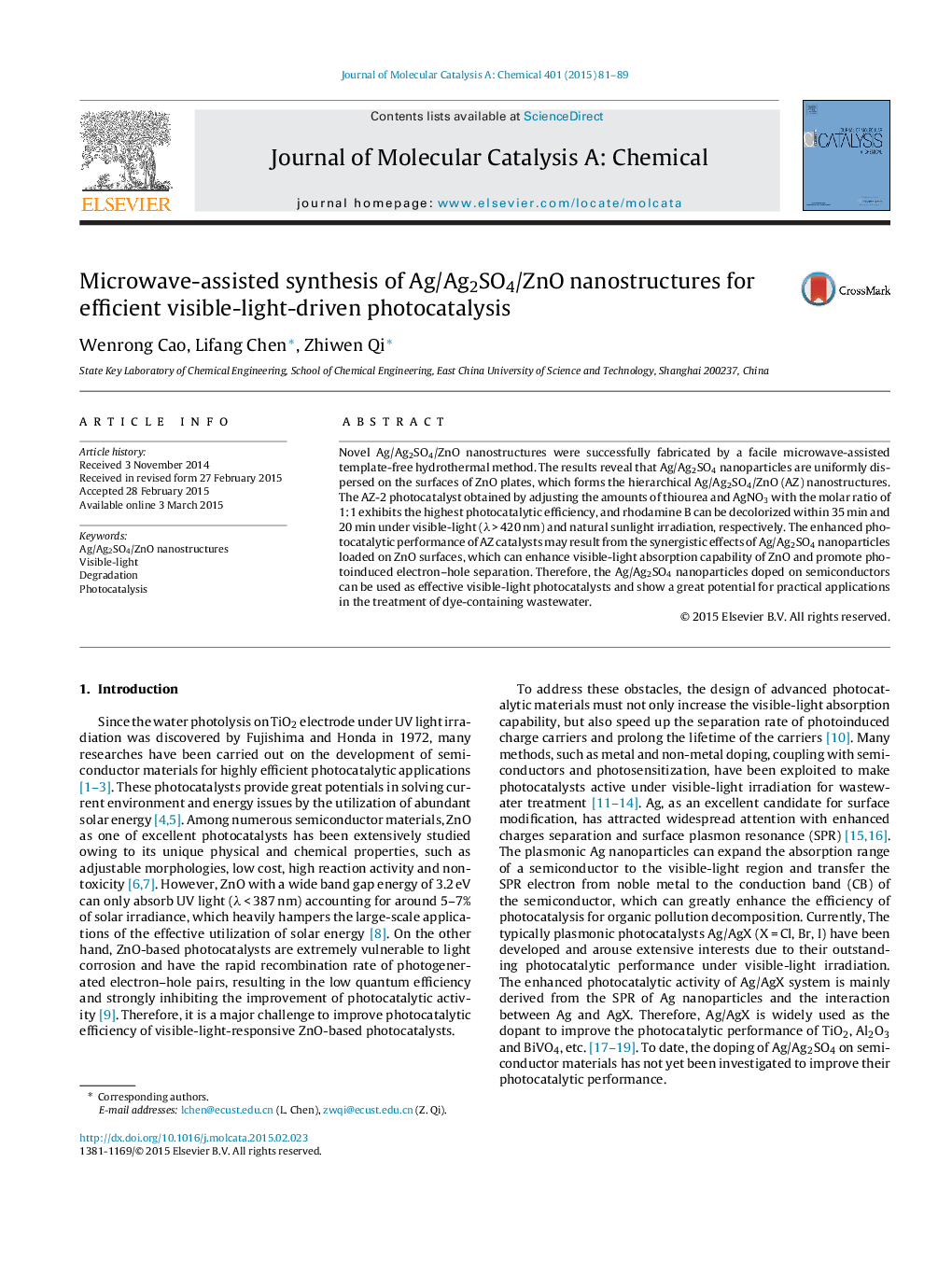| کد مقاله | کد نشریه | سال انتشار | مقاله انگلیسی | نسخه تمام متن |
|---|---|---|---|---|
| 65049 | 48380 | 2015 | 9 صفحه PDF | دانلود رایگان |

• Novel Ag/Ag2SO4/ZnO nanostructures were developed for visible-light-driven photocatalysis.
• The catalyst exhibited the highest visible-light activity with thiourea: AgNO3 mole ratio of 1:1.
• The possible photocatalytic mechanism under visible-light irradiation was proposed.
Novel Ag/Ag2SO4/ZnO nanostructures were successfully fabricated by a facile microwave-assisted template-free hydrothermal method. The results reveal that Ag/Ag2SO4 nanoparticles are uniformly dispersed on the surfaces of ZnO plates, which forms the hierarchical Ag/Ag2SO4/ZnO (AZ) nanostructures. The AZ-2 photocatalyst obtained by adjusting the amounts of thiourea and AgNO3 with the molar ratio of 1:1 exhibits the highest photocatalytic efficiency, and rhodamine B can be decolorized within 35 min and 20 min under visible-light (λ > 420 nm) and natural sunlight irradiation, respectively. The enhanced photocatalytic performance of AZ catalysts may result from the synergistic effects of Ag/Ag2SO4 nanoparticles loaded on ZnO surfaces, which can enhance visible-light absorption capability of ZnO and promote photoinduced electron–hole separation. Therefore, the Ag/Ag2SO4 nanoparticles doped on semiconductors can be used as effective visible-light photocatalysts and show a great potential for practical applications in the treatment of dye-containing wastewater.
Figure optionsDownload high-quality image (198 K)Download as PowerPoint slide
Journal: Journal of Molecular Catalysis A: Chemical - Volume 401, 15 May 2015, Pages 81–89